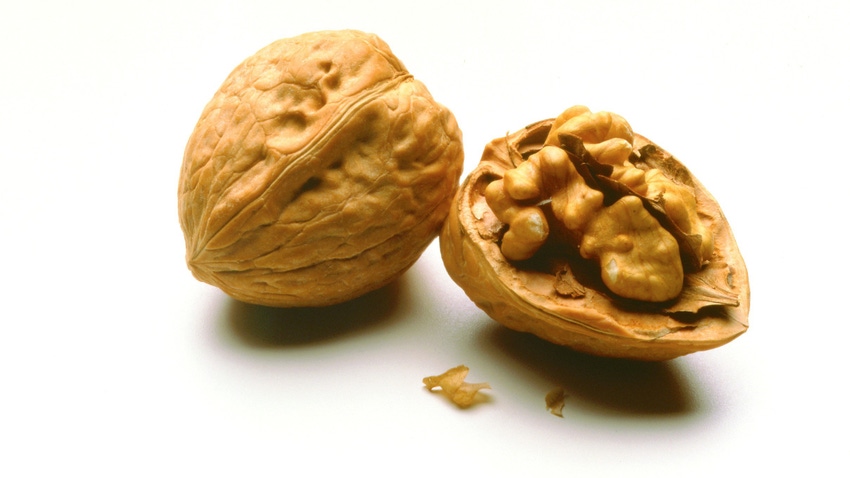March 12, 2024

The California Walnut Commission recently marked 30 years of research into the positive impacts on the body from walnut consumption, achieving discoveries in the areas of cognitive function, cancer, diabetes, weight, gut health, reproductive health, and heart health.
California Walnuts has been committed to building evidence and heart health recommendations to support global populations, as cardiovascular diseases (CVDs) lead the cause of death globally, taking an estimated 17.9 million lives each year.5
One ounce of walnuts contains important nutrients for optimal health, including 4 grams of protein and 2 grams of fiber.6 They contain 18 grams of total fat and are the only nut to provide an excellent source of the plant-based omega-3 ALA (2.5g/oz), an essential fatty acid that may play a role in heart health.6,7 In providing these valuable nutrients, walnuts serve as a versatile food to investigate as it relates to supporting heart health and beyond.
In 1993, the first paper on walnuts and heart health was published in the prestigious New England Journal of Medicine entitled, “Effects of walnuts on serum lipid levels and blood pressure in normal men.” This study laid the foundation for more than 60 published heart health papers demonstrating the cardiovascular benefits of daily walnut consumption, including over 300,000 human subjects to date.
“This study was the first of its kind to demonstrate the effects of walnuts on heart health. It led to many more years of research to validate and expand upon these findings,” explained Dr. Joan Sabate MD, DrPH professor and Director, Ctr for Nutrition, Lifestyle, & Disease Prevention, School of Public Health, Loma Linda University. “Prior to this, many people had assumed that walnuts—an energy-dense, high-fat food—were not a good choice to support heart health. This study marked a shift in perception among health professionals and consumers about walnuts’ unique nutrient profile and value in being investigated further for more overall health benefits.”
The past three decades have marked critical research achievements to support the cardiovascular benefits of walnuts. In 2004, the U.S. Food and Drug Administration (FDA) granted walnuts one of the first qualified health claims for a whole food: “Supportive but not conclusive research shows that eating 1.5 ounces of walnuts per day, as part of a low saturated fat and low cholesterol diet, and not resulting in increased caloric intake may reduce the risk of coronary heart disease.”
The recognition of walnuts as an evidence-backed food to support heart health continued in 2011 when walnuts were certified as a heart-healthy* food by the American Heart Association (AHA) Heart-Check Food Certification Program. The Heart-Check mark easily identifies foods that meet the nutritional standards set by the AHA and provides consumers with a quick and reliable way to identify heart-healthy foods. The following year, the European Union officially acknowledged the heart health benefits of walnuts in an approved health claim: “Walnuts contribute to the improvement of the elasticity of the blood vessels.”
Emerging areas
Over the years, walnut heart health research has explored more emerging areas, including how walnut consumption effects LDL and HDL cholesterol, apolipoprotein B and non-HDL cholesterol, blood pressure, inflammation, endothelial function, and plaque formation across a wide range of ages and populations.
For example, Coronary Artery Risk Development in Young Adults (CARDIA) is a landmark, ongoing study examining CVD risks and outcomes among young American adults. Investigators are exploring how lifestyle behaviors, social and environmental factors, and biological traits interact to influence CVD risk. The study began in 1985-86 with over 5,100 Black and White adults aged 18-30 from four US cities: Birmingham, Chicago, Minneapolis, and Oakland. Participants have been followed for over 35 years through in-person exams every 2-3 years.
CARDIA exams involve detailed assessments of various health measures, including physical exams, blood tests, imaging scans, and questionnaires about lifestyle and social factors. The findings provide valuable insights for potentially preventing CVD in young adults.
The cardioprotective effects of walnuts have been studied at world-renowned institutions, including Harvard, Penn State, and Yale Universities, Beth Israel Deaconess Medical Center, Hospital Clinic, University of Barcelona, Instituto de Salud Carlos III, Spanish Ministry of Health, among others. To date, 234 California Walnut Commission supported peer-reviewed publications across various health areas, including heart health, have been published from research conducted in 10 countries with over 55 institutions and universities. The California Walnut Commission gleans expert insights and recommendations from their Scientific Advisory Board to ensure they are at the forefront of investigating the most critical areas of nutrition research. Visit walnuts.org for recently published studies and heart-healthy* recipes certified by the American Heart Association.
Source: California Walnut Commission
Read more about:
WalnutsAbout the Author(s)
You May Also Like






